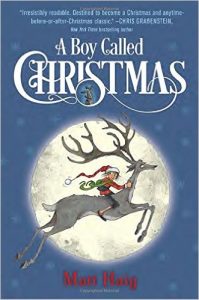Recently it struck me that in no other religion is faith so central as Christianity. Think about it: generally speaking, Buddhism stresses contemplation, Islam action, Confucianism conduct, Hinduism resignation, and Judaism is all about the greatness and majesty of God himself. Yahweh’s people are commanded to hear and obey him and have no other gods before him, which of course requires faith. But surprisingly, the word faith is not used that often in the Old Testament. Belief in God may be taken for granted, in a way; he speaks, we listen. But in the New Testament, the word explodes—occurring at least ten times more than in the Old. Also, “Belief”—“Do you believe I can do this?” “Don’t doubt, only believe.” “Believe on the Lord Jesus Christ and you shall be saved.”
Christ sees faith (belief) as a power, even a virtue. By it his followers move mountains, conquer kingdoms, overcome the world. Through faith we stand, live, and claim an inheritance as children of God. It’s almost as if faith were God’s secret weapon awaiting the appearance of the perfect object of faith: “A savior, who is Christ the Lord.” And like many other treasures in the storehouse of Christianity, the modern world has co-opted faith and secularized it as The Power of Positive Thinking. Countless Christmas movies, from Miracle on 34th Street to Elf to this year’s Believe, urge us toward the power of faith, without too much specificity about what we’re believing in as long as it’s cozy or comforting or nostalgic.
A Boy Called Christmas, by Matt Haig (Knopf, 2016, 235 pages) is a perfect example of the “just believe”

Although it’s fun to see the Santa elements come together, the theme of Nikolas resurrecting “magic” in a world of cynics is overdone. (He finds, for example, that he can expand time—and chimneys—indefinitely by the right kind of faith, and thus visit every child in the world on a single night.) Nikolas even becomes a kind of God/man with a dual nature: “He would unite the human bits with the magical bits and maybe one day he could change not just Elfhelm but the lives of humans too.” This change is built on ideas of hope and goodness that don’t have a lot of substance behind them, but that’s how the world gets things backward: belief itself matters more than the thing believed.
“By faith” is the jewel of Christianity, next to Christ himself. He came down to gather us in and draw us up. By faith we participate in the great drama of redemption, caught up in heavenly councils, gaining the ear of our almighty Father. By faith, our hope is built
on nothing less
Than Jesus’ blood and righteousness.
Enjoy those miracles on 34th Street or wherever you find them on your TV screen or on the page. Just remember these are borrowed wonders from the greatest wonder of all.
Stay Up to Date!
Get the information you need to make wise choices about books for your children and teens.
Our weekly newsletter includes our latest reviews, related links from around the web, a featured book list, book trivia, and more. We never sell your information. You may unsubscribe at any time.
Support our writers and help keep Redeemed Reader ad-free by joining the Redeemed Reader Fellowship.
Stay Up to Date!
Get the information you need to make wise choices about books for your children and teens.
Our weekly newsletter includes our latest reviews, related links from around the web, a featured book list, book trivia, and more. We never sell your information. You may unsubscribe at any time.
FREE Bible Guide!
Get a guide to the Best Bibles for Children and Teens. Perfect for an Easter gift.
We'd love to hear from you!
Our comments are now limited to our members (both Silver and Golden Key). Members, you just need to log in with your normal log-in credentials!
Not a member yet? You can join the Silver Key ($2.99/month) for a free 2-week trial. Cancel at any time. Find out more about membership here.
1 Comments
Leave a Comment
You must be logged in to post a comment.


Great post (and reminder), Janie! Thanks!